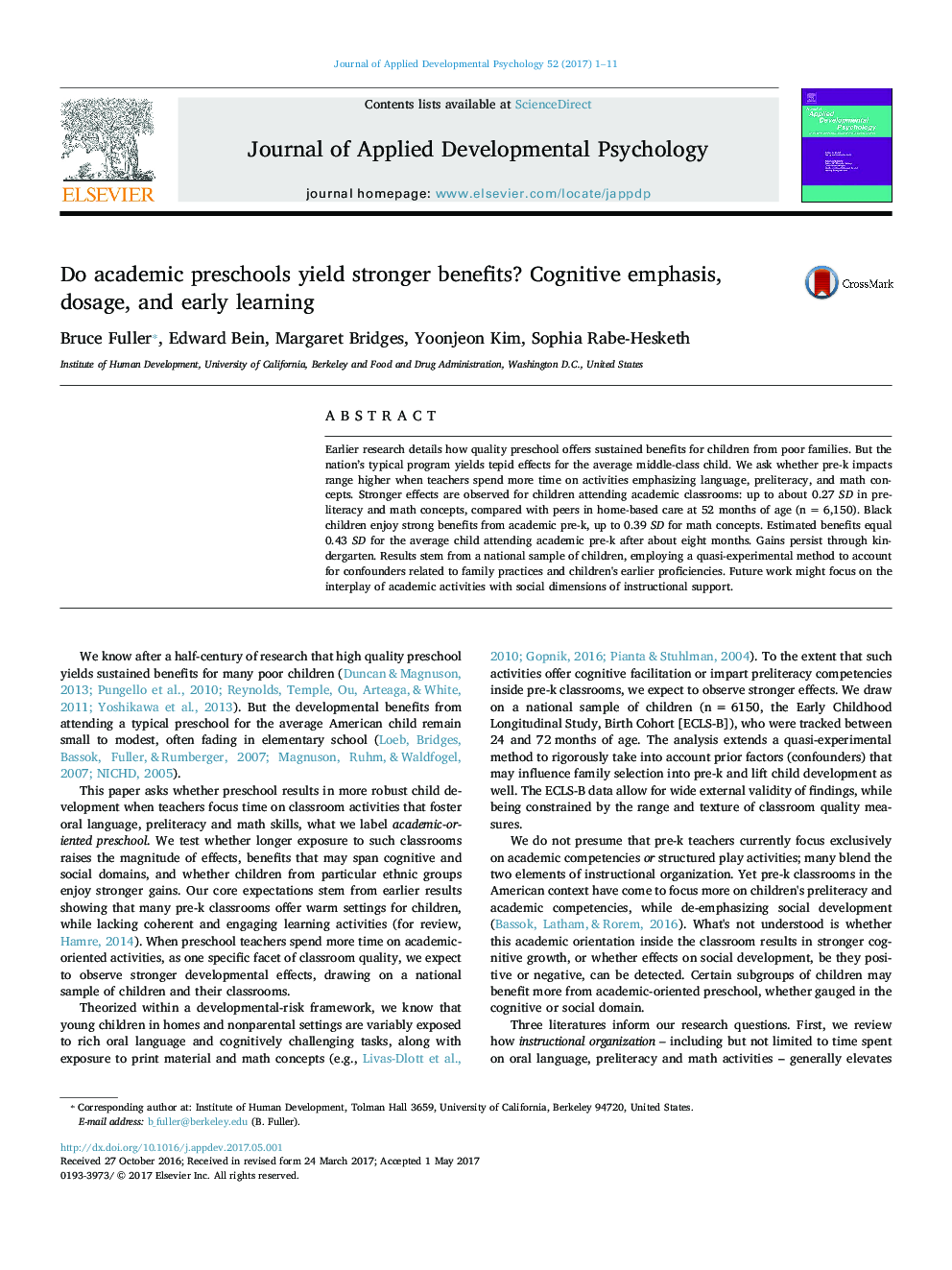| Article ID | Journal | Published Year | Pages | File Type |
|---|---|---|---|---|
| 4939133 | Journal of Applied Developmental Psychology | 2017 | 11 Pages |
Abstract
Earlier research details how quality preschool offers sustained benefits for children from poor families. But the nation's typical program yields tepid effects for the average middle-class child. We ask whether pre-k impacts range higher when teachers spend more time on activities emphasizing language, preliteracy, and math concepts. Stronger effects are observed for children attending academic classrooms: up to about 0.27 SD in preliteracy and math concepts, compared with peers in home-based care at 52 months of age (n = 6,150). Black children enjoy strong benefits from academic pre-k, up to 0.39 SD for math concepts. Estimated benefits equal 0.43 SD for the average child attending academic pre-k after about eight months. Gains persist through kindergarten. Results stem from a national sample of children, employing a quasi-experimental method to account for confounders related to family practices and children's earlier proficiencies. Future work might focus on the interplay of academic activities with social dimensions of instructional support.
Related Topics
Social Sciences and Humanities
Psychology
Applied Psychology
Authors
Bruce Fuller, Edward Bein, Margaret Bridges, Yoonjeon Kim, Sophia Rabe-Hesketh,
